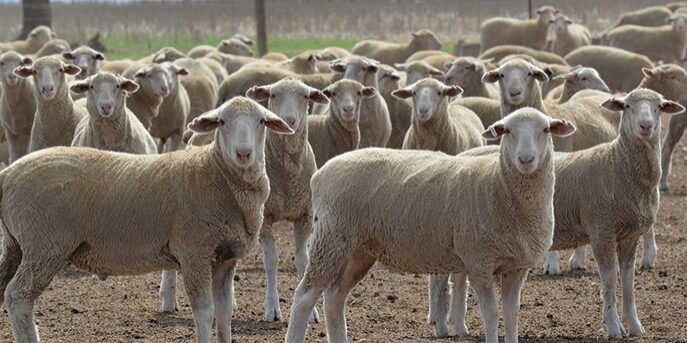
Jeremy Rogers – PIRSA Senior Veterinary Officer
With wetter conditions expected over the summer months in early 2022 the incidence of parasites is likely to rise. Most producers will be familiar with blowflies, but in drier areas like the Murray Mallee, when there is significant summer rain (greater than 15mm), Barbers Pole worm (BPW) becomes a possibility. This is a worm that will often catch people out, as scouring is not a feature. The worm is present in many flocks at a low level, but “breeds up” very quickly in ideal conditions - summer rain in SA. This parasite affects mainly lambs, that might appear listless, fast breathing, very weak, or found dead. Often the best lambs are affected first, and people often blame “pulpy kidney or PEM”.
If you have suspicions, a very simple test is to look at the gums and inner eyelids of sheep - if these look as white as paper, particularly if there is several unwell sheep, BPW may well be the problem. When examining a dead sheep, you will clearly see large numbers of this worm in the 4th stomach, and faecal egg counts can be well over 50,000epg.
Fortunately, there appears to be little documented drench resistance in this parasite in the drier areas of SA (unless they are WA-born sheep), so most drenches appear to be effective so far, but there are specific drenches designed for this parasite. You should drench affected mobs immediately and monitor other mobs using a faecal egg count (see www.wormboss.com on how to do this).
Over the Christmas to February period (before rainfall events) beware of Annual Ryegrass Toxicity (ARGT) that can kill livestock overnight. Strands of dried annual ryegrass along fence lines are often the problem - particularly for lambs.
Watch for summer pneumonia in lambs kept in confinement feeding situations – particularly lambs purchased from wetter and cooler parts of SA or Victoria. If you suspect this, you should get veterinary diagnosis.
With the high value of livestock at present it is worthwhile getting early assistance for problems, even if they are only a few sheep, as it may heed off a more serious problem later. Contact your local Veterinary practice, or PIRSA for assistance.
